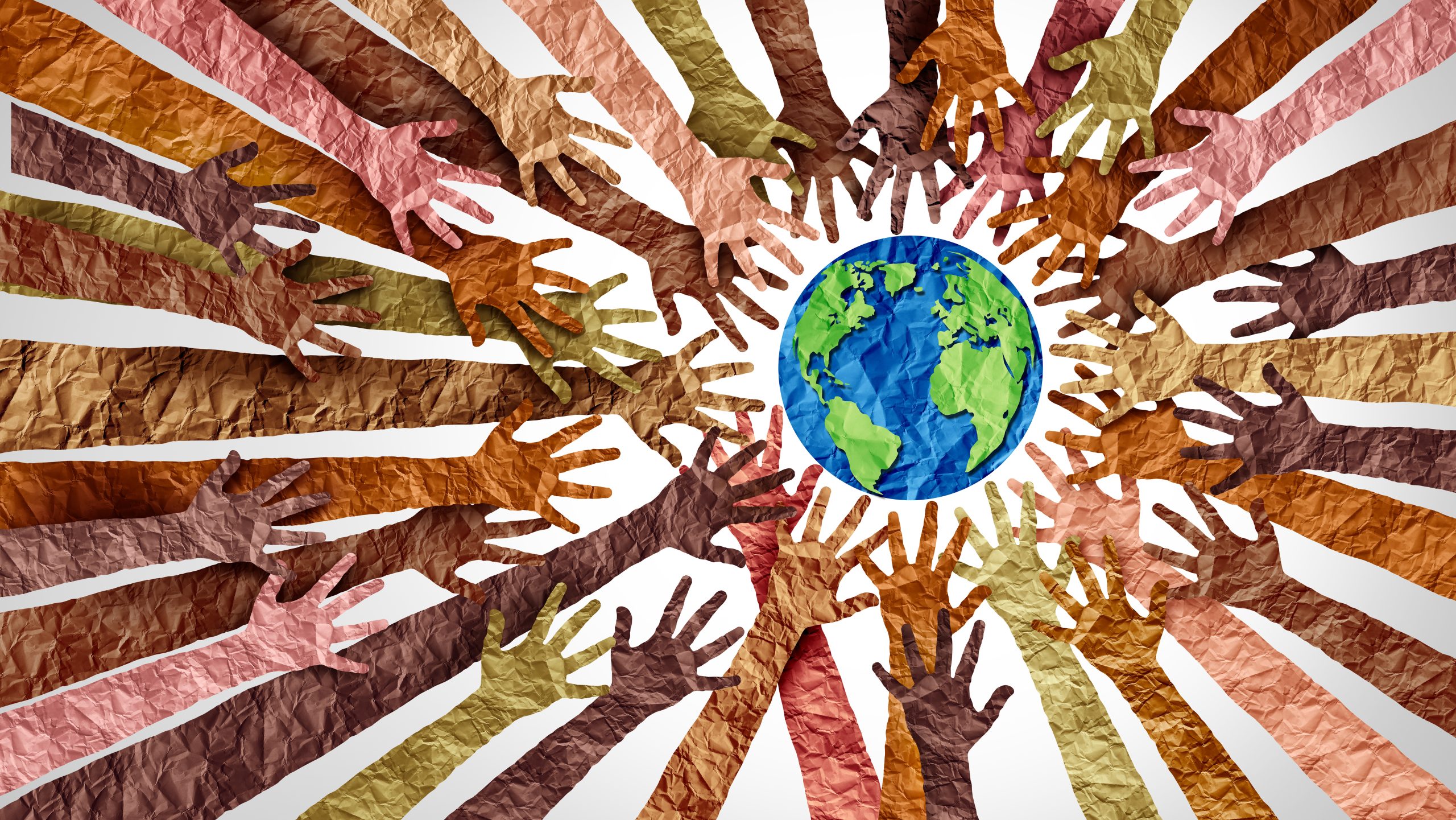
By Dr. Samuel Leguizamon Grant
(he/they/we)
Not that long ago, Desmond Tutu, who played a key role in the Truth and Reconciliation Process in South Africa, offered us a definition of climate apartheid: Those who contributed least to the climate crisis experience the worst impacts.
This re-awakened a commitment I made when I engaged in the global divestment movement to end apartheid in 1983. I recognized that to be a contributor to healthy peoples sharing a healthy planet, I had to organize for wellbeing for the common good.
I invite us to consider ending climate apartheid, not as just an “opportunity” but as an obligation we share as earthlings to the wellbeing of all life.
We are a world divided. Apartheid is a global system, sourcing from a global worldview — the worldview of the taker.
Indigenous languages all over the world have a word for this worldview, as they have experienced it. The same year that I engaged in the anti-apartheid movement, I began learning from an Indigenous elder. The word in Dakota culture for this way of being is wašíču, which has been popularized to mean “fat-taker” or taker-of-the-fat, indicative of a person or culture that embodies a culture absent reciprocity with all of life – a person or culture that is greedy, acquisitive and, from an Indigenous lens, dishonorable.
The Intergovernmental Panel on Climate Change reports regularly reinforce the point that Africa has contributed extremely little to the climate crisis and yet is facing the most severe impact outside of small island nations. This is a useful thing to know as we consider our obligation to address the climate crisis. How do we do it in a way that does not increase the burden on Africa and on the world’s growing number of climate migrants?
In my Africana body, I recognize the intersectionality of slavery, lynching, Jim Crow, the prison industrial complex and climate migration as part of the same global disease — the taking of life, land and liberty from the many for the benefit of the few. Racialized eco-apartheid socially reproduces two braided forms of violence: anti-Black violence and biospheric degradation (biodiversity loss, climate change, nitrogen and phosphorous loading, ocean acidification, et cetera).
Vandana Shiva, as part of a 2013 exhibit, contributed an articulation of eco-apartheid that put climate apartheid in the appropriate context for me. Rather than focus on how the climate crisis was hurting the world’s peasants, Indigenous peoples, the urban poor, and Black and Brown populations across the planet, her framework looks at it through a lens of how it hurts all of us and all of life.
She defines eco-apartheid as the organized division of human beings from nature — treating nature as a “thing,” not as the source of life — the organized division of humans from each other — racism, genocide, hetero-patriarchy, nationalism, xenophobia, etc. — and the way in which we internalize living in a world of division and contribute to its social reproduction.
Sourcing from her articulation, the way to respond to the climate crisis is to, for the rest of our time on earth, be earthlings embodying beloved community with all of life. Beloved community can be defined in many ways: The Martin Luther King, Jr. Center for Nonviolent Social Change defines it as “a global vision in which all people can share in the wealth of the earth.”
Steps in this direction include repairing our collective relationship with the ecosystems on which our own lives depend by preventing further biodiversity loss, reducing greenhouse gas emissions, introducing environmental education at all levels of learning and eradicating the environmental justice overburden in ecologically marginalized communities.
We are not living in an Anthropocene by which humans have created a climate crisis; that is too simplistic. We are living in an Apartheidocene, grounded in the division of humans from the earth and from each other. Cancerous divisions emerge within each of us to the extent that we socially reproduce division in the world around us.
How do we proceed? Link what is happening in the biosphere to what is happening in your own relational ecology. Examine the ways in which you live a segregated life and how that reinforces apartheid in the world. Examine ways in which you may benefit from “predatory inclusion” the way Keeanga-Yamahtta Taylor describes it: the organization of social relationships in a way that include all of us but do so unequally (like the way the World Bank, the International Monetary Fund and perhaps your local bank, operate).
Samir Amin defined five monopolies that work as an integrated set to facilitate continued wealth accumulation for the few while wrecking life and the planet for the many. These are monopolies of natural resource control, of weapons of mass destruction, of ideological and educational hegemony, of financial control and control of technology.
Ending apartheid requires softening your worldview, recognizing that our own is just one of many ways of being and thinking. All are needed to sustain our lives on the planet, and they need to be in healthy relationship with one another. Call it the democratization of intellect.
We begin inside our own hearts and proceed with practices that nourish beloved community through us and around us. It is only hard if we believe it is. Embrace it like breathing and drinking clean water, other necessary things for survival.
Sam is the executive director of Rainbow Research, a national social-justice focused nonprofit that does research, evaluation and participatory learning work with communities, and institutions across the country. In partnership with the University of Minnesota’s Institute on the Environment, the USGS and NOAA, we are working to address flood and drought risk that reduce climate resilience in environmental justice communities in the Upper Mississippi River Basin. Rainbow Research has an office in Boulder County, where Sam also resides.
